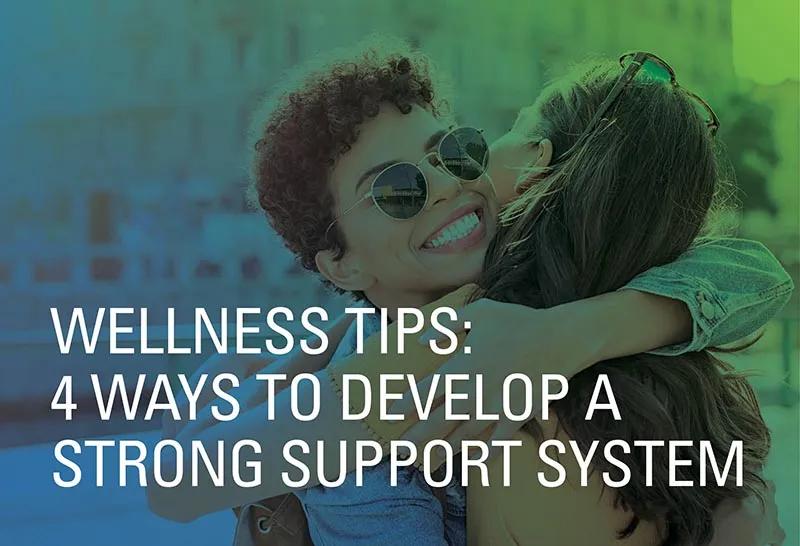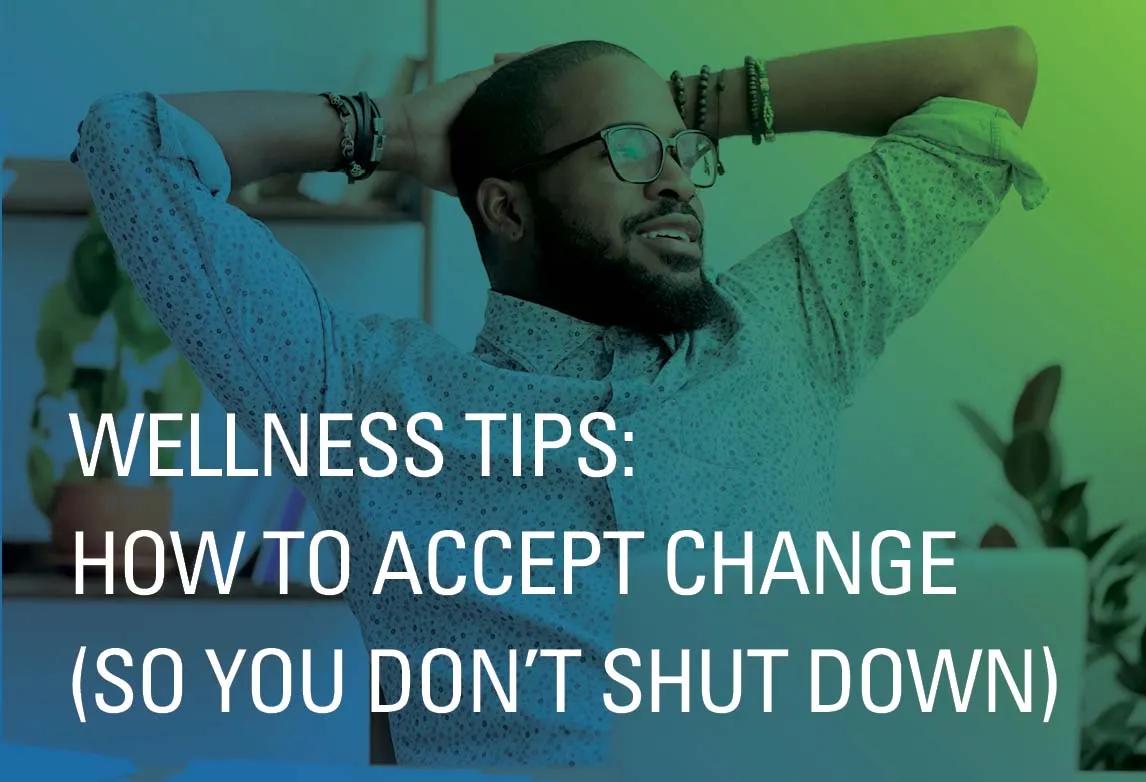Table of contents
Student Wellness: Tips for Emotional Health

Table of Contents
At Ultimate Medical Academy (UMA), we want learners in our healthcare programs to be healthy so they can feel well enough to care for others. This involves not only looking after their physical health, like eating nutritious foods and getting regular physical exercise, but also tending to their emotional health.
What is Emotional Health?
Emotional health — sometimes called emotional wellness or emotional well-being — refers to the ability to manage and express your emotions in healthy ways. Someone who is emotionally healthy can adapt when life doesn’t go as planned. They can also face situations with positivity and have a solution-focused mindset.1
An example of emotional wellness is feeling stressed about a job interview and journaling or going for a walk to relax versus turning to alcohol or drugs. Another is working through a disagreement calmly and with compassion instead of yelling to get your point across.
Benefits of positive emotional well-being
Being healthy emotionally not only feels good mentally but also comes with other benefits. According to the Centers for Disease Control and Prevention (CDC), these include:1
- A reduced risk of disease and injury
- Speedier recovery if you are sick or injured
- Stronger relationships with others
- Higher self-esteem
- A sense of meaning and purpose in life
- Increased work productivity and improved performance
Tips to Reduce Stress and Increase Emotional Wellness
A person with emotional well-being can still get sad or feel stressed, explains the CDC, but they’re better able to manage these emotions.1 Maybe you’re stressed about going back to school while taking care of a family and working full-time, or worried about making a career change later in life. You might also face other life stressors like relationship issues, financial strain, or legal problems.
Here are a few strategies to help reduce your stress and improve your emotional health:
Do things you enjoy.
Find a hobby that makes you smile, schedule regular get-togethers with friends, or simply take a nice warm bath at night before bed. These activities can help you decompress. They also give you something to look forward to when life gets tough.
Laugh more.
Laughing lowers stress hormones (like epinephrine and cortisol) while increasing the hormones that make you feel good (dopamine, oxytocin, and endorphins).2 So, look for ways to infuse laughter into your days. Watch funny videos, TV shows, or movies. If you spend time on social media, follow accounts with a similar sense of humor.
Take digital breaks.
It can also be helpful for your emotional wellness to spend some time off social media platforms and away from the news. Staying informed about what’s going on locally or what’s happening with family and friends can be good, but if your feed is full of negative news, it may make you feel more stressed. 3
Pick your battles.
Some things may not be worth your time and effort, especially if you can use your energy in better ways.When something or someone upsets you, ask yourself whether it’s important enough to have a conversation. If it is, find a time when you can speak calmly and rationally. If it isn’t, you may be better off letting it go.
Get moving.
You don’t have to spend hours a day at the gym to enjoy the stress benefits of exercise — even short sessions of activity offer benefits, according to the Mayo Clinic.4 Walk during work breaks, march in place while cooking dinner, or pace while on the phone.Find ways to get more active and you may notice your stress levels go down.
Ways to Improve Your Emotional Health if You Have Anxiety
The National Institute of Mental Health reports that roughly one in three people will have an anxiety disorder at some point in their lives 5 Feelings of anxiousness can cause restlessness, irritation, difficulty sleeping, trouble concentrating, and more. What can you do to improve your emotional well-being if you experience these effects?
The Anxiety & Depression Association of America offers a few strategies for reducing anxiety: 6
Accept that there are things you can’t control.
No amount of worrying can change the past. It’s also impossible to control other people’s actions and certain major events, like natural disasters. Focus on what you can control and find ways to accept or handle everything else.
Stay positive.
Negative thoughts can increase feelings of anxiety, 7 impacting your emotional health. To keep this from happening, strive to find the positive in situations. For instance, maybe your healthcare course feels hard. Instead of getting discouraged, look at it as a sign that you’re learning a lot of things that can help you in your career.
Identify your triggers.
Knowing what makes you anxious can help you take steps to either limit your exposure to these things or to plan an emotionally healthy response in advance. Journaling may help by giving you the opportunity to explore your feelings (and their triggers) more deeply.
Take a few deep breaths.
If you notice that your anxiety is beginning to rise, breathe in and out deeply and slowly. Focus on the air as it enters and exits your body. Deep breaths help lower your heart rate and blood pressure, enabling you to feel more relaxed.8
UMA Student Wellness: Emotional Support Resources
If you feel that your emotions are getting in the way of your everyday activities or stopping you from living your best life, it may be time to seek professional help. There’s no shame in doing this. It’s no different than seeing a dermatologist for a skin issue or a dentist for your teeth.
Your healthcare provider can help you find a counselor or therapist to support your emotional healing. The American Psychological Association also offers an online search for psychologists, enabling you to find a professional near you who specializes in your issues or concerns.
Also, know that if you want to improve your emotional well-being, UMA is here to help. ComPsych GuidanceResources offers 24/7 resources for UMA students interested in addressing personal, financial, legal, or life concerns. Through this platform, you receive up to three counseling sessions per issue, per year. Simply click on the Register tab to create an account, input UMASP in the “Organization Web ID” field, then continue the registration process. You can also call 866-797-1622 for services by phone.
Mental health is an important aspect of overall health and wellness. As a healthcare professional, when you feel your best, you’re better able to care for others. So, take the time to look after your emotional health. It can help you excel in your healthcare role.
UMA does not endorse any vendors, products, or services presented in the UMA Wellness Blog Series, and UMA bears no responsibility in any capacity as it relates to such vendors, products, or services. This blog does not provide medical advice and is intended for informational purposes only. The information on wellness or related services is not intended or implied to be a substitute for professional medical advice, diagnosis, or treatment. Please contact the vendor or service provider for answers to questions regarding its content, products, or services.
1 Centers for Disease Control and Prevention. About Emotional Well-Being. https://www.cdc.gov/emotional-well-being/about/index.html
2 Youngblood, G. S. The health benefits of humor. Mayo Clinic Press. https://mcpress.mayoclinic.org/healthy-aging/the-health-benefits-of-humor/
3 Centers for Disease Control and Prevention. Managing Stress. https://www.cdc.gov/mental-health/living-with/index.html
4 Mayo Clinic. Exercise and stress: Get moving to manage stress. https://www.mayoclinic.org/healthy-lifestyle/stress-management/in-depth/exercise-and-stress/art-20044469
5 National Institute of Mental Health. Anxiety Disorders. https://www.nimh.nih.gov/health/topics/anxiety-disorders
6 Anxiety & Depression Association of America. Tips and Strategies to Manage Anxiety and Stress. https://adaa.org/tips
7 Gupta, S. Breaking negative thought patterns could ward off anxiety, depression. https://www.sciencenews.org/article/negative-thoughts-anxiety-depression
8 MedlinePlus. Relaxation techniques for stress. https://medlineplus.gov/ency/patientinstructions/000874.htm
Request Information
Talk with us. Start your journey.
Complete this form and we'll call you to explore options at UMA and answer your questions. We'll also email you info on how to get started. We're with you at every step!
Request Information
Talk with us. Start your journey.
Complete this form and we'll call you to explore options at UMA and answer your questions. We'll also email you info on how to get started. We're with you at every step!
About the Author
 Christina DeBusk
Christina DeBuskChristina DeBusk is a freelance writer who has been providing health and wellness content to healthcare organizations such as the American Chiropractic Association and International Sports Sciences Association (ISSA) since 2011. She obtained her Bachelor of Science in Sociology from Central Michigan University, minoring in psychology. She has also earned several ISSA certifications, including Certified Personal Trainer and Certified Nutrition Specialist, achieving the status of Elite Trainer.
Related Content


